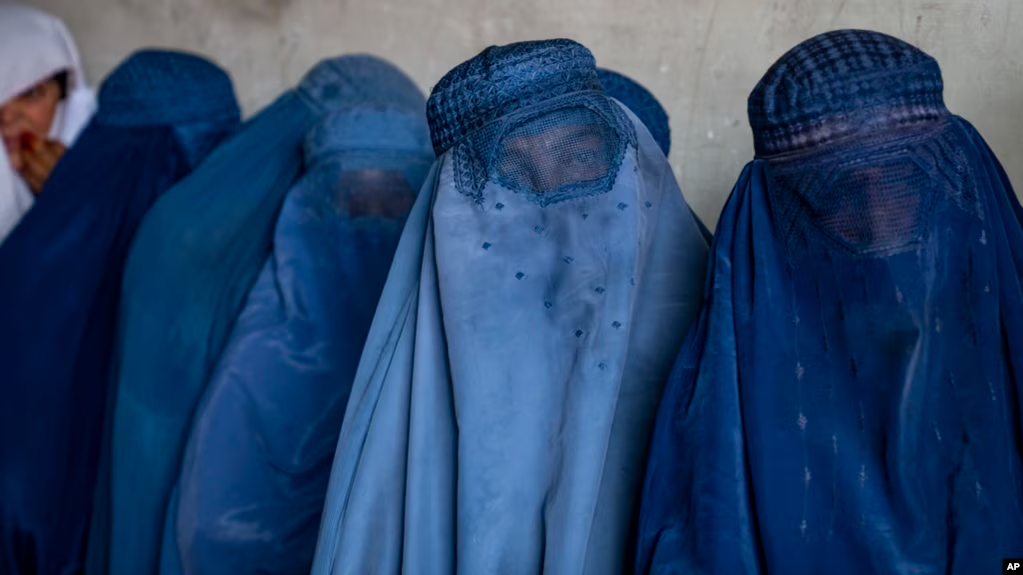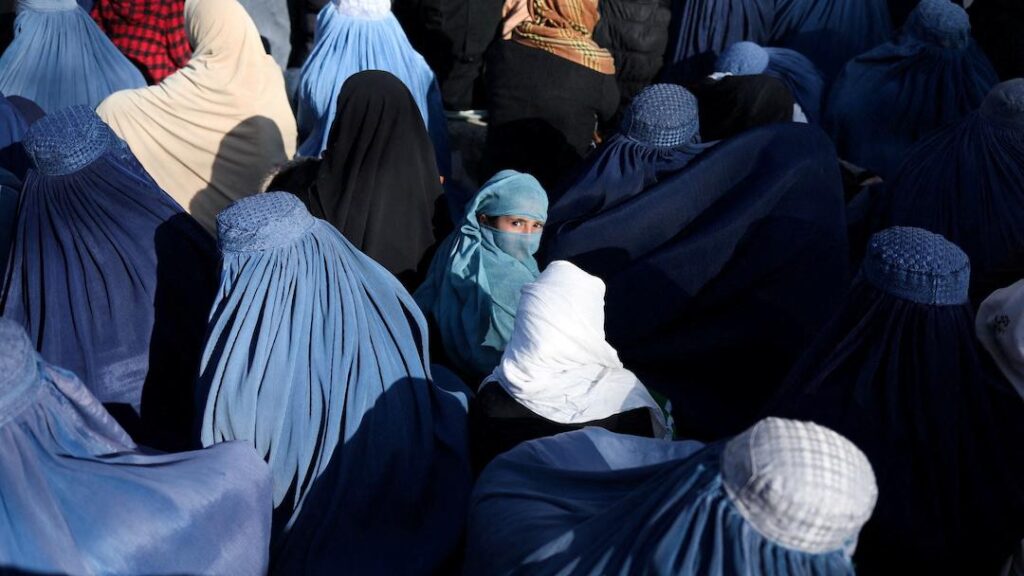KABUL, Afghanistan — The Taliban government in Afghanistan has issued a new decree that significantly restricts women’s freedoms, prohibiting them from singing, reciting poetry, or speaking aloud in public. The 35-article document, approved by the Taliban’s reclusive supreme leader Hibatullah Akhundzada, also mandates that women keep their faces and bodies covered at all times in public.

The Justice Ministry spokesman announced the new “Vice and Virtue” decree in a video message on Wednesday, marking the first formal declaration of such laws since the Taliban regained power in Afghanistan three years ago.
Key provisions of the decree include banning women from looking at men they are not related to by blood or marriage, and vice versa; requiring women to wear clothing that is not thin, short, or tight; prohibiting the publication of images of living beings; banning music in public transport; requiring female passengers to be accompanied by a male guardian; and mandating that men grow beards of at least “fistful” length.
The decree empowers the Ministry for the Propagation of Virtue and the Prevention of Vice to enforce these rules across Afghanistan. Penalties for violations range from warnings to imprisonment for up to three days, with the possibility of property seizure.
Human rights activists fear these restrictions signify a significant escalation in the Taliban’s efforts to enforce their interpretation of Islamic Sharia law, particularly in suppressing women’s presence in public life.

The United Nations reported last month that the ministry’s expanding policing of public morality was contributing to a climate of fear and intimidation among Afghans. Richard Bennett, the U.N.-appointed special rapporteur on Afghan human rights, confirmed on Wednesday that the Taliban had barred him from visiting the country, calling it a “step backward.”
Bennett has previously alleged that women and girls under Taliban rule “are being persecuted” based on gender, which he described as a crime against humanity. Taliban spokesman Zabihullah Mujahid defended the travel ban on Bennett, accusing him of “spreading propaganda” and providing “misleading” information to the international community.
These new restrictions come on top of existing bans that prevent Afghan girls ages 12 and older from attending school and many women from working in public and private sector jobs, including at United Nations agencies.
The international community has yet to officially recognize the Taliban as the legitimate government of Afghanistan, largely due to their treatment of women. The new decree is likely to further complicate Afghanistan’s relationships with other nations and international organizations.



